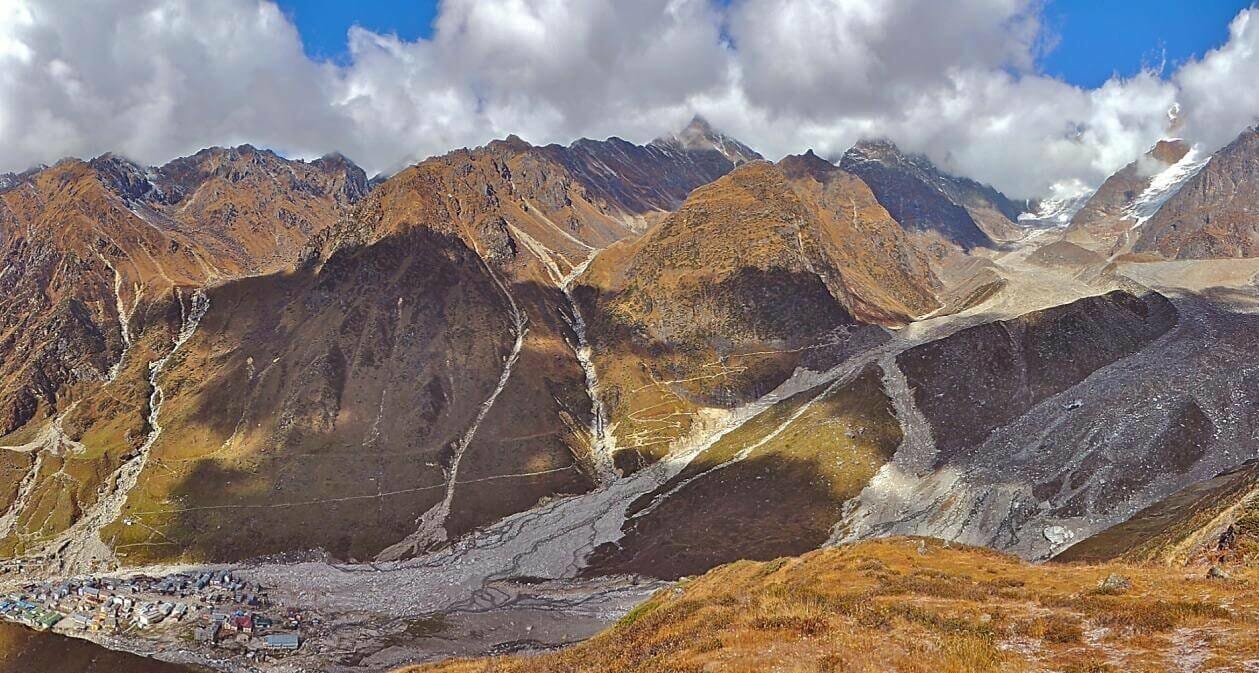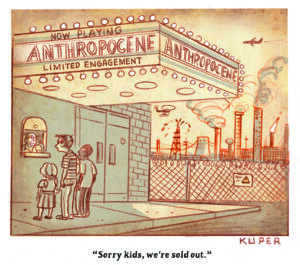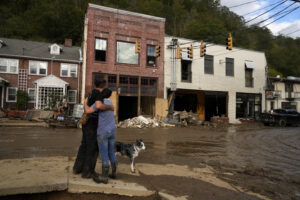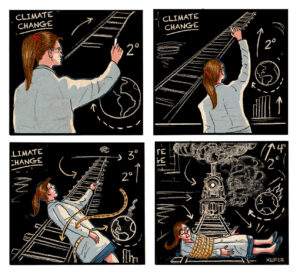The Deadly Risk From Landslides Is Rising
Waterlogged hillsides are dangerous. For those who live on them, or further downhill, they can be life-threatening. Climate News Network
Climate News Network
Lethal landslides are on the increase. From 2004 to 2016, sudden cascades of rock, rubble and mud have claimed at least 50,000 lives. And fatal slips down unstable hillside slopes have steadily increased this century, according to new research.
British geographers report in the journal Natural Hazards and Earth System Sciences that they had amassed a database of 4,800 fatal landslides since 2004 and found that at least 700 of them had what they call a direct human fingerprint: they happened because people built on unstable soils, they mined, legally and illegally, they cut into hillsides, and they allowed pipes to leak.
In addition, heavy rainfall, earthquakes, explosions, dam collapses and freezing and thawing also set the earth moving at ever greater speeds, with deadly consequences.
The researchers also report that they found that other catalogues of natural disaster consistently under-estimated the toll exacted by landslides.
One study found that the International Disaster Database, maintained by the international disaster community, under-estimated the number of fatal landslides by between 1400% and 2000%, often because the death tolls from such events were lumped in with other forms of disaster that might precipitate landslip: among them volcanic eruption, earthquake and flooding.
Melanie Froude, of the University of Sheffield, who led the study, said:
We were aware that humans are placing increasing pressure on their local environment, but it was surprising to find clear trends within the database that fatal landslides triggered by construction, illegal hill-cutting and illegal mining were increasing globally during the period of 2004 to 2016.
All the countries in the premier league for fatal landslides were in Asia: one in five of these happened in India, but Pakistan, Myanmar and the Philippines also suffered increasing losses.
Poorest in the Shadows
Such findings are no surprise. First, there are more people on the planet, looking for new places to live and new ways of making a living, and the poorest are always more likely to be forced to the margins, to live on or in the shadow of dangerous, unstable slopes.
Second, the world is warming: for every extra degree Celsius the moisture-holding capacity of the atmosphere increases by about 7%, so more rain is likely to fall with ever greater intensity to saturate more soil and dislodge more rock. The researchers found that 79% of all landslides could be linked to rainfall.
And, with greater warming, there is a greater hazard of devastating superstorms, along with hurricanes and tropical cyclones that deliver the conditions for catastrophic floods not just in Asia but in Europe and the US.
Paradoxically, extremes of heat and drought can also create dangerous slopes: dangerous wildfires can remove the tree cover that stops hillsides from slipping, and drive people from their homes to places that could later be just as hazardous.
Applying Knowledge
Research like this is never just academic: the point of such studies is to draw attention to natural disasters that need never have happened, and identify the communities most at risk.
And these, the scientists say, are more frequently in poor countries, with the poorest of all disproportionately at risk. The point the scientists make is that there is nothing inevitable about a “natural” disaster. Human error, heedlessness and ignorance all contribute to loss, suffering and death.
“With appropriate regulation to guide engineering design, education and enforcement by regulation by specialist inspectors, landslides triggered by construction, mining and hill-cutting are entirely preventable,” Dr Froude said.
Your support is crucial...As we navigate an uncertain 2025, with a new administration questioning press freedoms, the risks are clear: our ability to report freely is under threat.
Your tax-deductible donation enables us to dig deeper, delivering fearless investigative reporting and analysis that exposes the reality beneath the headlines — without compromise.
Now is the time to take action. Stand with our courageous journalists. Donate today to protect a free press, uphold democracy and uncover the stories that need to be told.






You need to be a supporter to comment.
There are currently no responses to this article.
Be the first to respond.